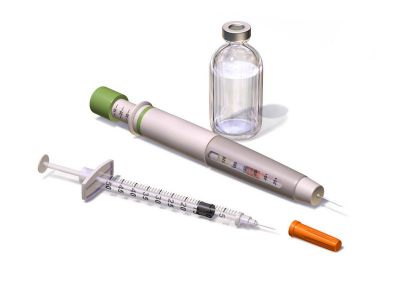The REACTION
project, an EU-funded health ICT research project that came to
completion in February this year, has developed an exciting set of tools
and technologies that are helping patients with diabetes and their
doctors to better manage the condition.
REACTION project coordinator, Lydia Montandon says: ‘The main goal
of REACTION was to investigate how information and communication
technologies (ICT) can support patients and healthcare professionals in
managing diabetes, by providing efficient and scalable tools that can be
used in different healthcare contexts across Europe. The result is an
intelligent service platform that can be used for remote monitoring and
therapy management, facilitating continuous and tight control of blood
glucose levels and other vital signs that are crucial for good diabetes
management and insulin therapy.’
Learning from Patients and Professionals
The REACTION project has involved patients and healthcare providers
since its inception. Patients at the Medical University of Graz in
Austria and patients at primary care who are being treated at the
Chorleywood Health Centre in the UK have been using the system to manage
their condition. At every stage the users of the system have given
feedback that has helped the researchers to design a system that is
effective and intuitive.
In the hospital, nurses and doctors both said that the tools used
(REACTION GlucoTab® system) helped them to create better care plans for
their patients. The improved on-site documentation and predictions
provided by the system meant that they could give more accurate doses of
insulin. The result is that patients’ glucose levels stayed far more
stable in the recommended target range. In the health centre, patients
used the system to keep a close eye on their symptoms and their vital
signs. They could then share these readings with their doctor or nurse,
and were much better able to stay healthy as a result.
Going Beyond Technology for Better Health
During the research project, the teams developed a number of tools,
including GlucoTab®, a tablet-based system that advises doctors and
nurses on the best course of treatment for each patient, a smartphone
app that allows patients to monitor their nutrition, and networking
protocols that allow patients and healthcare professionals to share
readings from a range of sensors worn or temporally located on the
patient’s body. Additionally, it has made significant progress in the
research on automatic glycaemic control, integrating blood glucose
sensors and the insulin dosing algorithm developed in the project.
But beyond the hi-tech developments, REACTION has also looked at the
social, economic and legal implications of the technology. Throughout
the course of the project, the researchers documented the way users and
healthcare professionals felt about the technology, to better understand
what might make tools like this more socially or professionally
acceptable. They also studied the legal frameworks in the member states
regarding privacy and liability. Moreover, the REACTION GlucoTab® system
was CE marked and can now be used in a clinical routine. The monitoring
devices adapted for primary care patients and the gateway passed safety
and EMC tests and have also obtained a CE mark. As a result, the
REACTION project has brought advanced technology for diabetes management
much closer to reality.
Finally, in May 2014 the GlucoTab® system won the research prize for
Human-Technology-Interface in the category “economic applications”
awarded by the government of the federal state of Styria in Austria.
Link to project on CORDIS:
- FP7 on CORDIS
Link to project's website:
- REACTION website
Link to related video:
- Video
Other links:
- European Commission's Digital Agenda website
 EN
EN  CS
CS DE
DE ES
ES FR
FR HU
HU IT
IT PL
PL PT
PT РУ
РУ SK
SK TR
TR УК
УК AR
AR 中文
中文







